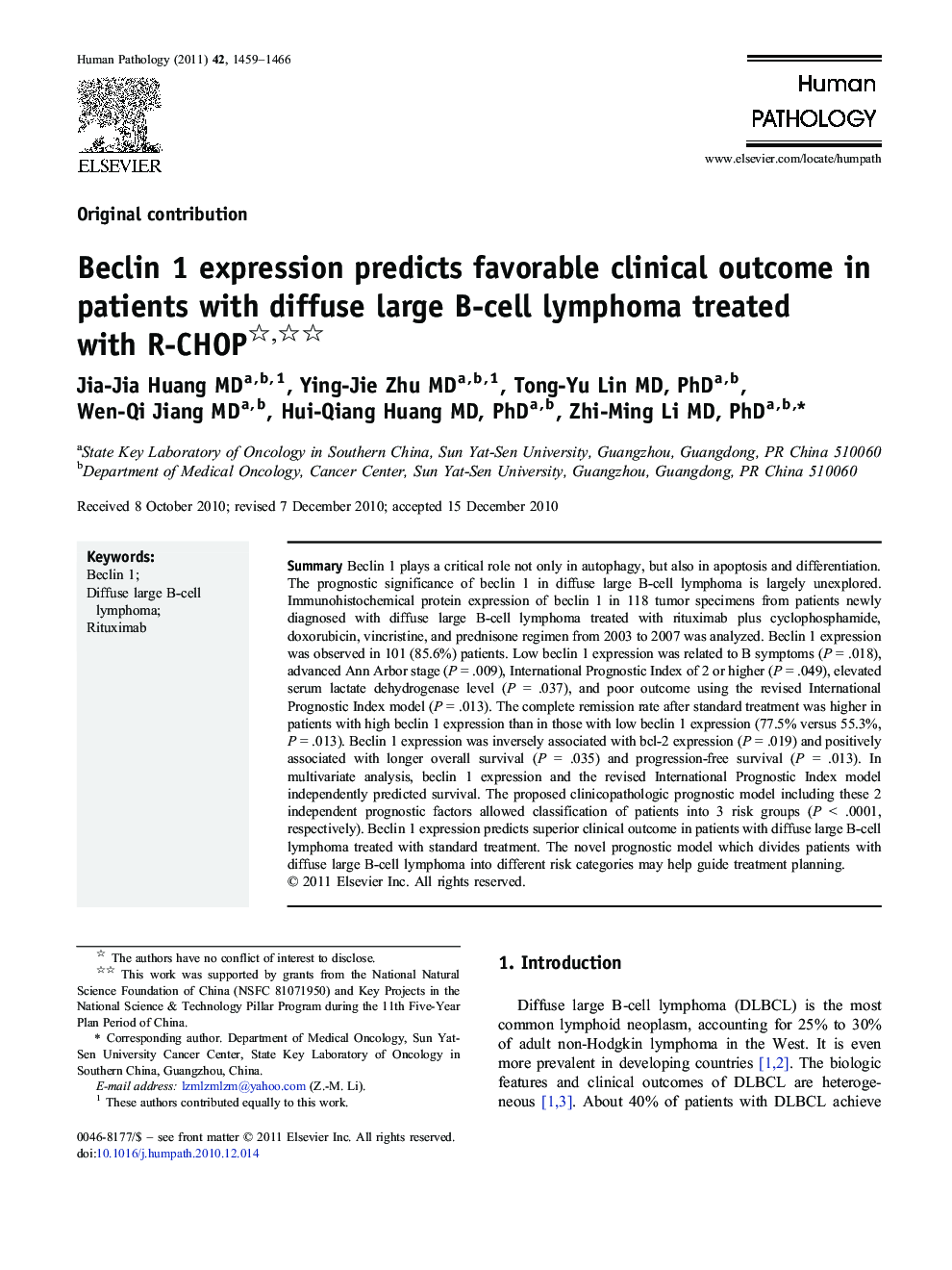| Article ID | Journal | Published Year | Pages | File Type |
|---|---|---|---|---|
| 4133975 | Human Pathology | 2011 | 8 Pages |
SummaryBeclin 1 plays a critical role not only in autophagy, but also in apoptosis and differentiation. The prognostic significance of beclin 1 in diffuse large B-cell lymphoma is largely unexplored. Immunohistochemical protein expression of beclin 1 in 118 tumor specimens from patients newly diagnosed with diffuse large B-cell lymphoma treated with rituximab plus cyclophosphamide, doxorubicin, vincristine, and prednisone regimen from 2003 to 2007 was analyzed. Beclin 1 expression was observed in 101 (85.6%) patients. Low beclin 1 expression was related to B symptoms (P = .018), advanced Ann Arbor stage (P = .009), International Prognostic Index of 2 or higher (P = .049), elevated serum lactate dehydrogenase level (P = .037), and poor outcome using the revised International Prognostic Index model (P = .013). The complete remission rate after standard treatment was higher in patients with high beclin 1 expression than in those with low beclin 1 expression (77.5% versus 55.3%, P = .013). Beclin 1 expression was inversely associated with bcl-2 expression (P = .019) and positively associated with longer overall survival (P = .035) and progression-free survival (P = .013). In multivariate analysis, beclin 1 expression and the revised International Prognostic Index model independently predicted survival. The proposed clinicopathologic prognostic model including these 2 independent prognostic factors allowed classification of patients into 3 risk groups (P < .0001, respectively). Beclin 1 expression predicts superior clinical outcome in patients with diffuse large B-cell lymphoma treated with standard treatment. The novel prognostic model which divides patients with diffuse large B-cell lymphoma into different risk categories may help guide treatment planning.
